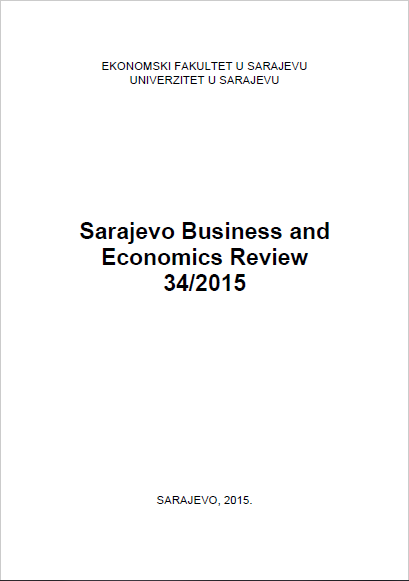PREGLED OSNOVNIH ELEMENATA SISTEMA OPOREZIVANJA DOBITI PREDUZEĆA U FEDERACIJI BOSNE I HERCEGOVINE
REVIEW OF THE BASIC COMPONENTS OF CORPORATE INCOME TAX SYSTEM IN THE FEDERATION OF BOSNIA AND HERZEGOVINA
Author(s): Mirza KršoSubject(s): Business Economy / Management, Economic policy, Fiscal Politics / Budgeting
Published by: Ekonomski fakultet u Sarajevu
Keywords: Income tax system; Federation of Bosnia and Herzegovina; Economic policy;
Summary/Abstract: Corporate income tax is one of the two key instruments available to the creators of economic policy in the Federation of Bosnia and Herzegovina. It belongs to the domain of public revenues in the area of fiscal policy, which, because of its traditional role in economic policy (Auerbach, 2012), and given the specific design of monetary policy in Bosnia and Herzegovina (eg. Gedeon and ðonlagić 2009), has perhaps the key role in regulation of economic activity. It should also be taken into account the specific limits and trends of the corporate income tax (Devereux, MP, and Sørensen, P..B., 2006) that showed a significant degree of convergence globally, and in the case of the emerging economies with similar characteristics as FBiH. Analysis of the ways in which the corporate income tax is defined and used in the historical and legal context of the economic performance of the Federation of Bosnia and Herzegovina is the basic framework of this work. Basically, we will concentrate on two groups of factors that shaped the system of corporate taxation in the Federation; first of which covers a broader contextual framework of the 1992-2007 period, and the second group that encompass somewhat narrower frame 2008-2012, which corresponds to the global financial and economic crisis and the debt crisis in the European Union.
Journal: Zbornik radova - Sarajevo Business and Economics Review (SBER)
- Issue Year: 2015
- Issue No: 34
- Page Range: 182-203
- Page Count: 22
- Language: Bosnian

